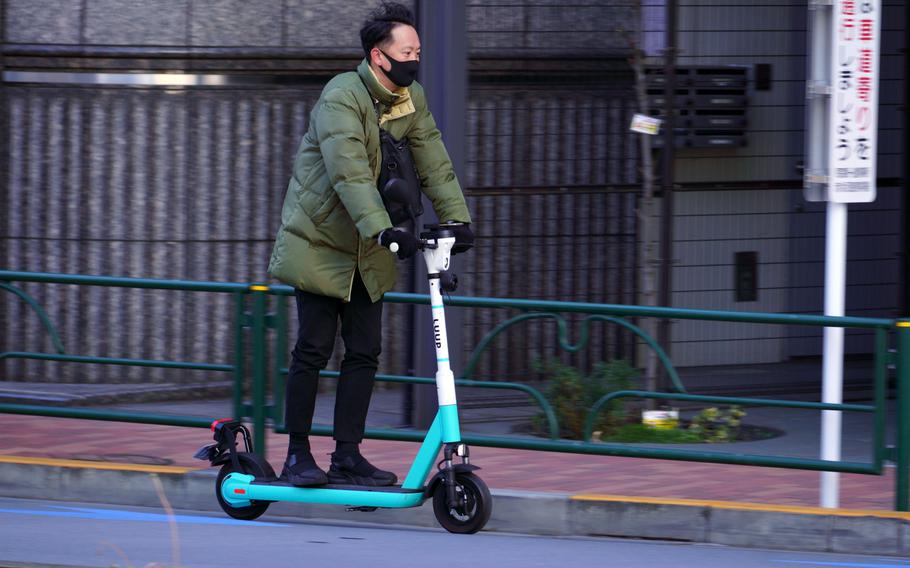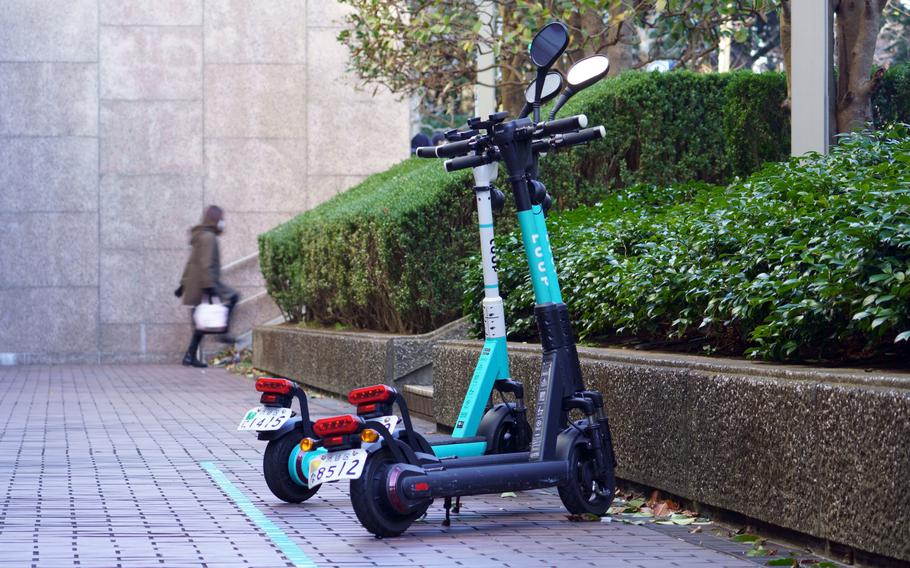
A man rides a rented electric scooter in Tokyo, Jan. 25, 2023. (Akifumi Ishikawa/Stars and Stripes)
TOKYO — Starting in July, operating an electric scooter in Japan will no longer require a license or a helmet, though wearing one is encouraged, the National Police Agency announced recently.
A revised law takes effect this summer to make hopping unencumbered aboard an e-scooter quick and easy for trips along city streets and sidewalks.
Electric scooters have become a popular means of on-demand transportation for commuters and tourists in Japan’s major cities, according to a Dec. 26 report by The Japan Times. For example, a Tokyo-based e-scooter rental start-up, Luup, now has a fleet of 5,000 rental scooters and e-bikes across 2,340 pickup points in places like Tokyo, Kyoto and Osaka, according to the report.

A revised Japanese law takes effect this summer to make hopping unencumbered aboard an e-scooter quick and easy for trips along city streets and sidewalks. (Akifumi Ishikawa/Stars and Stripes)
The law permits e-scooters to travel up to 20 kph, or about 12.5 mph, on streets and up to 6 kph, nearly 4 mph, on sidewalks, according to the police agency.
E-scooters may not exceed 190 cm, or 6.2 feet, in length, or 60 cm, just shy of 2 feet, wide, the agency said. They may have a maximum rated horsepower of 600 watts.
Operators must be 16 or older to ride an e-scooter. Helmets are not required but riders will be “obligated to make an effort” to wear them, according to the revision.
E-scooters may be operated on sidewalks at the lower speed limit provided they’re equipped with green indicator lights, according to the revisions.
Scooters that meet traffic law standards may be operated without green lights until December 2024, but must bear a special license plate and may not be ridden on sidewalks, according a Jan. 19 report in the Mainichi newspaper.
The revised law also unifies regulations for rental and personal scooters into one code, according to a Jiji Press report Jan. 19.
Violators are subject to fines, according to Jiji Press. An operator with more than two violations within three years must attend a safety class.